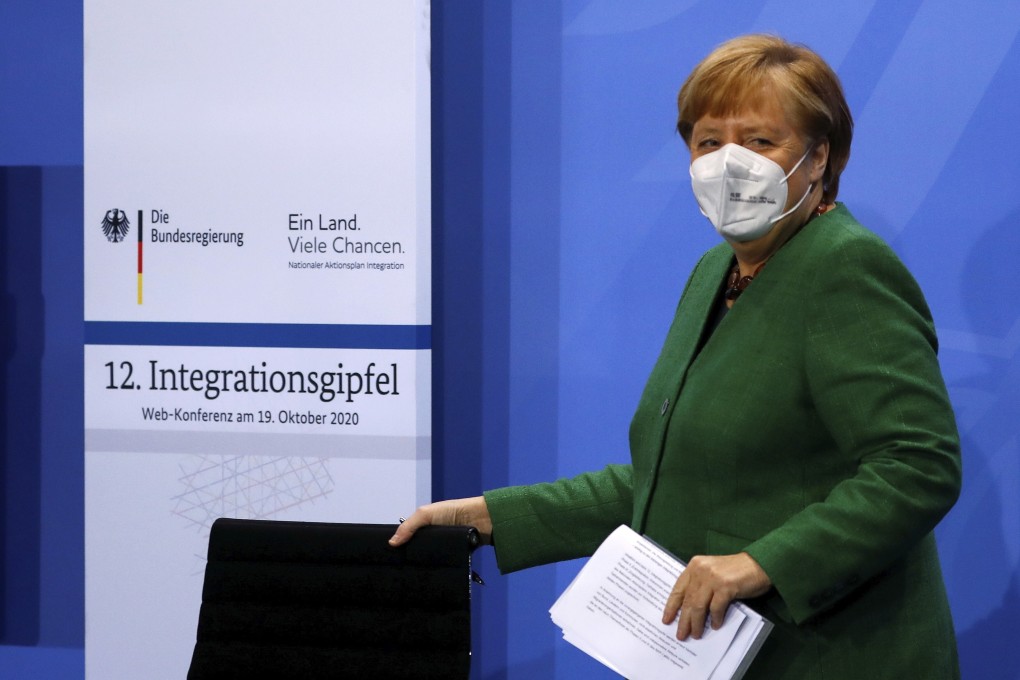Angela Merkel says German companies should diversify to Asian markets beyond China
- Singapore and South Korea offer promising opportunities since they regained their economic strength soon after weathering the pandemic, German minister says
- ‘We naturally want to diversify our supply chains,’ economics minister Peter Altmaier tells German business conference

Germany has begun a campaign calling for diversification from China, with Chancellor Angela Merkel and her economics minister suggesting that businesses expand their Asian market.
This comes days after Merkel cancelled a meeting with 26 other European Union leaders to discuss future China policies, citing the coronavirus pandemic and the more pressing priority of Brexit.
Germany, the biggest economy in the EU, recently launched its Indo-Pacific policy, which officials said was aimed at encouraging businesses to explore destinations in the region other than China.
Beijing has been eager to keep the EU on its side as its economic and geopolitical contest with the US intensifies. But it remains unclear whether it will agree to further market access demanded by the EU amid talks for an investment treaty, scheduled to be completed this year.

01:53
Germany and allies call for acceptance of Uygurs and slam China on Hong Kong’s national security law
Other European leaders, including French President Emmanuel Macron, have also called for less reliance on China, but usually in the context of the medical supply chain, rather than an all-out diversification, as Merkel suggested.
Speaking in an event organised by the Asia-Pacific Conference of German Business on Monday, Merkel urged German companies to diversify and win new markets throughout the Asia-Pacific region. The government will continue its efforts to improve the framework conditions, she said.